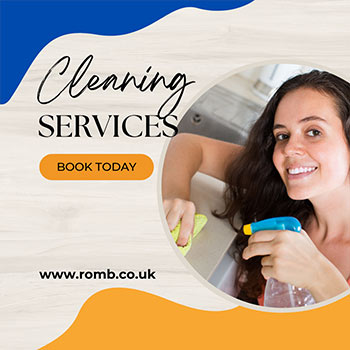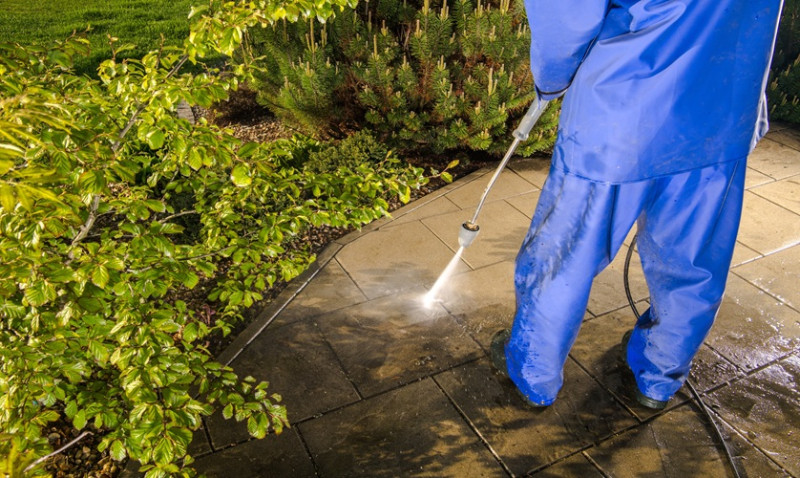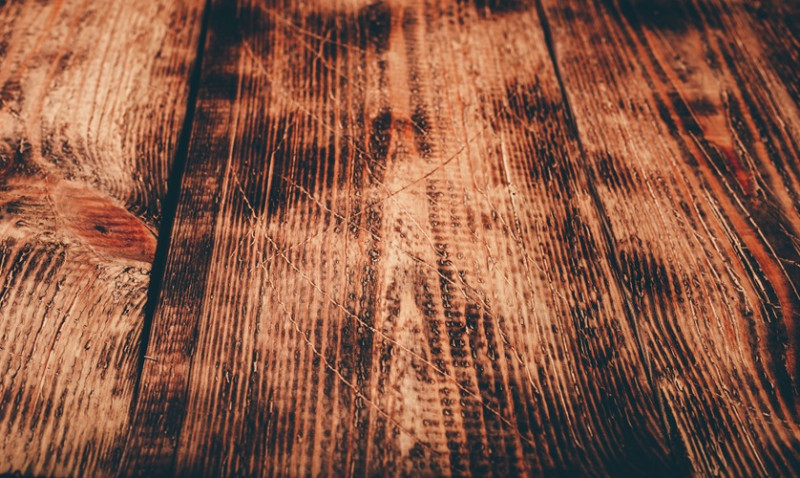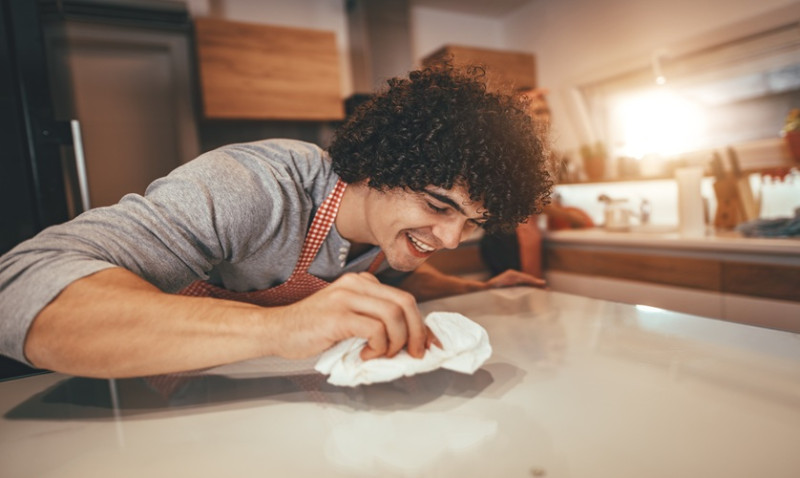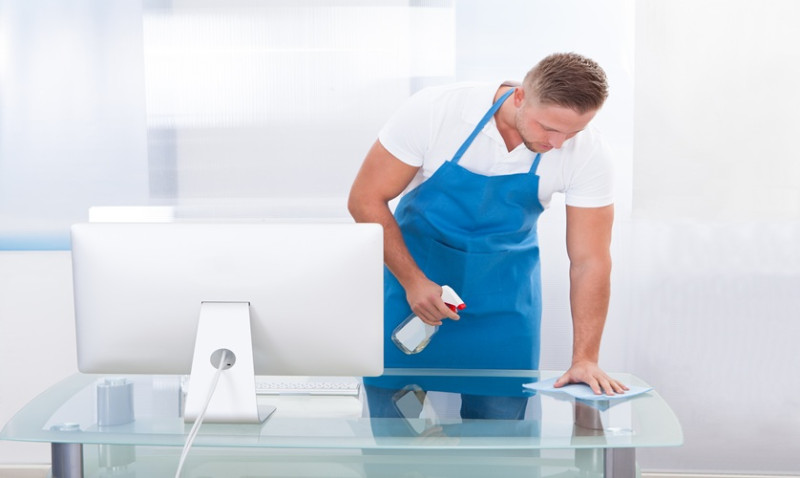
Whether you're a DIY enthusiast, a young professional planning your first home makeover, an architect working on your next renovation plan, or a seasoned tradesperson, one question comes up time and again: what’s the best surface cleaner for the job? With so many options available, it can be hard to decide which product delivers on performance, versatility and safety — all while being suitable for British homes and climates. In this guide, we’ll walk you through the key considerations and top recommendations to help you select the right surface cleaner for your next project.
Why Surface Cleaners Matter
Surface cleaners aren’t just about making things look good — they’re crucial for hygiene, prepping surfaces for decoration, and protecting materials from long-term damage. A properly cleaned surface can mean the difference between a paint job that lasts for years and one that peels within weeks. For tradespeople and designers, using the right surface cleaner enhances the quality of work and ensures customer satisfaction.
Moreover, today's homeowners and professionals are more conscious of the environmental impact and chemical safety of cleaning products. Many are now seeking multi-surface solutions that are not only effective but gentle on surfaces, families, and the environment.
With the UK’s damp climate and varied architecture — from modern flats in London to Grade II listed homes in the countryside — finding a versatile cleaner that’s both powerful and surface-specific is key.
Types of Surface Cleaners Explained
Not all surface cleaners are created equal. The ideal product often depends on the material you're cleaning — be it wood, tile, stone, stainless steel, or painted drywall. Understanding which cleaner performs best with each material helps drive better project outcomes and protects against costly damage.
| Surface Type | Recommended Cleaner Type | Special Notes |
|---|---|---|
| Wood (floors, doors, furniture) | Gentle, non-abrasive pH-neutral cleaner | Avoid water saturation to prevent warping |
| Tile and Ceramic | Acidic or bleach-based cleaner | Great for soap scum and limescale |
| Stainless Steel | Dedicated stainless steel cleaner or vinegar solution | Use non-scratch cloths to avoid marks |
| Glass and Mirrors | Ammonia-based glass cleaner | Buff with microfibre to avoid streaks |
| Painted Surfaces | Mild detergent or sugar soap | Ideal before repainting or decorating |
| Natural Stone (granite, marble) | Specialist stone cleaner (pH-neutral) | Avoid acid-based products |
Top Surface Cleaner Brands Available in the UK
The UK market is full of both consumer-grade and trade-grade surface cleaners. Below are some top picks that come highly recommended by professionals and backed by user reviews across multiple sectors.
- Sugar Soap: Widely used throughout the UK for preparing walls before painting. Brands like Everbuild and Bartoline offer ready-mixed and concentrated options loved by decorators and DIYers alike.
- Zep All-Purpose Cleaner: A powerful degreaser suitable for kitchens, bathrooms, and utility areas. Known for its commercial-grade results.
- Method Multi-Surface Cleaner: A popular eco-friendly choice, appreciated by young professionals and environmentally conscious households. It’s safe for most sealed surfaces and comes in pleasant fragrances.
- HG Extreme Power Cleaner: A favourite among tradespeople, especially for post-construction cleaning and tough grime removal.
- Flash Professional Multipurpose Cleaner: Trusted in both residential and commercial applications. Widely used by professional cleaners, it’s dependable and cost-effective.
For more specialist requirements — like cleaning natural stone or restoring tired wood — specialists such as Lithofin or Osmo offer targeted solutions used by architects and high-end renovators.
What to Look for in a Surface Cleaner
If you want a high-quality cleaner without the guesswork, here are a few crucial factors to consider before buying:
- Surface Compatibility: Check the label to ensure it’s suitable for the materials you’re cleaning. Look for “multi-surface” or explicitly listed substrates like vinyl, glass, or ceramic.
- Ease of Use: For tradespeople on tight deadlines, a ready-to-use spray or wipe that needs no rinsing could be a timesaver. DIYers might prefer concentrated formulas they can dilute for flexibility.
- Fragrance: This is especially relevant in residential jobs. Harsh chemical smells can linger and upset sensitive individuals. Many modern brands offer naturally fragranced or fragrance-free versions.
- Eco Credentials: Look for biodegradable formulas, recyclable packaging, and products certified by global or local environmental standards.
- Antibacterial Properties: In kitchens, bathrooms, and shared offices, sanitising capability is a big plus. Many multi-surface sprays now include antibacterial agents.
DIY vs Professional-Grade Cleaners: What’s the Difference?
The biggest difference between DIY supermarket cleaners and trade-level solutions comes down to strength, concentration, and sometimes price. While a domestic surface cleaner will certainly lift general dirt and marks, professional-grade products offer enhanced results for demanding tasks like renovation prep, heritage cleaning, or heavy-duty grime elimination.
DIYers tend to prefer ready-to-use formats, aesthetic-friendly packaging, and easy availability from retailers such as B&Q or Screwfix. Professionals, on the other hand, favour bulk containers (5L+), fast-acting formulas, and a wider selection of surface-specific options.
That being said, you don’t always need to “go pro” if you’re redoing a bedroom or flat. However, for large-scale refurbs, office fit-outs, or working with high-end materials, it makes sense to invest in contractor-grade cleaners to minimise risk and ensure a high finish.
Eco-Friendly vs Chemical Cleaners: What's Better?
Eco-conscious consumers and professionals are increasingly turning to green alternatives. These products are typically plant-based, biodegradable, and non-toxic — perfect for homes with pets, children or allergy-sensitive adults.
Brands like Ecover, Bio-D, and Method offer effective cleaning solutions that don’t compromise the planet's wellbeing. While they may take a little more effort on tougher stains, they excel in everyday cleaning and make a great impression in client spaces that prioritise sustainability.
However, for shock cleaning — such as mould removal, post-renovation grime, or grease-heavy kitchens — chemical-based cleaners may still be necessary. Always weigh the cleaning requirements and environmental sensitivity of the space when selecting your product.
Top Tips for Effective Surface Cleaning
- Test First: Always test a new cleaner on a small, hidden patch before using it widely — especially on porous or antique materials.
- Use the Right Tools: Microfibre cloths, non-scratch sponges and soft brushes can make all the difference. Scrubbing too hard or using harsh tools may damage the surface.
- Ventilate the Area: Ensure good airflow when using chemical cleaners, especially in small or enclosed spaces.
- Follow the Dwell Time: Let cleaners sit and activate on the surface for a few minutes before wiping or rinsing — don’t rush the process.
- Finish with Rinse and Dry: If required, rinse the area with clean water and dry with a fresh cloth to avoid streaks or residue.
Final Thoughts: Choosing the Right Cleaner for the Right Job
No one-size-fits-all answer exists when asking, “What’s the best surface cleaner?” The ‘best’ is what aligns with your specific needs: the material, the depth of grime, your environmental preferences, and who will be exposed to the product afterward.
Whether it’s prepping your living room walls for a fresh coat of Farrow & Ball, restoring an Edwardian fireplace surround, or maintaining a commercial workspace, the right cleaner can save you time, effort and expense in the long run.
Choose wisely, pay attention to product instructions, and you’ll enjoy better results, healthier environments, and more successful projects across the board.
